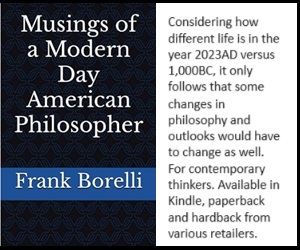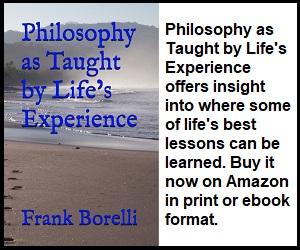In today’s world, it’s near impossible to get through a day without feeling the impact of social media in some way. A media on the big social media outlets is all but mandatory for most companies. For those running their own businesses, social media is a valuable marketing tool but also can serve for research, advertising and more. But, as anyone who has been on social media long enough knows, it’s not all peaches and cream. Eventually you’ll find someone who insists that you’re wrong about something, or that they’re the bigger expert, or that you simply are a fraud. The anonymity of accounts on social media can work against you if you’re not careful.
 Enter an experience that I had recently and we’ll use it as the example: A well known expert on firearms and hunting posted about what handgun he normally carried when he went to the “outback” in his area. Then he posed the question: “What do you carry under such circumstances?”
Enter an experience that I had recently and we’ll use it as the example: A well known expert on firearms and hunting posted about what handgun he normally carried when he went to the “outback” in his area. Then he posed the question: “What do you carry under such circumstances?”
Completely forgetting the fact that this man has 5,000 followers, I went ahead and posted up my answer. Out of genuine respect for his experience and knowledge, I then asked his thoughts on what I carried and how I loaded it. He made a comment back, essentially recommending that I change my load due what he perceived as the biggest potential threats I’d face and I thanked him for that. I’d be a fool not to take his advice into consideration.
Then the dog pile began…
Somewhere among his 5,000 followers were about three or four dozen folks who all assumed a few things about me: First, they assumed that my shooting skills are poor. Second, they assumed that I have little experience carrying a gun. Third, they assumed that I wanted their advice in addition to the original expert’s advice.
 One gentleman went so far as to say that I was carrying the entirely wrong gun (I specified a .357 Magnum) and that I was wasting my time carrying anything short of a .44 Magnum. Another gentleman suggested that my gun and load didn’t matter so much as my obviously poor shooting skills and that I should practice until I could hit a moving poisonous snake in the head from at least five yards away. Yet another gentleman suggested that until I had at least five years’ experience carrying a gun, I probably shouldn’t be trying to carry a gun for defensive or survival purposes “in the wild” anyway.
One gentleman went so far as to say that I was carrying the entirely wrong gun (I specified a .357 Magnum) and that I was wasting my time carrying anything short of a .44 Magnum. Another gentleman suggested that my gun and load didn’t matter so much as my obviously poor shooting skills and that I should practice until I could hit a moving poisonous snake in the head from at least five yards away. Yet another gentleman suggested that until I had at least five years’ experience carrying a gun, I probably shouldn’t be trying to carry a gun for defensive or survival purposes “in the wild” anyway.
Now, let me comment on that a moment. For the gentleman who said I was carrying the wrong gun, the argument of caliber is one older than everyone involved in the conversation. People have been arguing (at a minimum) .45ACP versus 9mm for about 130 years now. My answer is, to each his own. For the guy who felt I needed to practice until I could hit that moving snake’s head, I congratulate you on your competitive skill. I don’t anticipate a time when I’ll ever be able to shoot a moving rattlesnake’s head from a distance of five yards. For the guy who commented that I needed at least five years’ experience carrying a gun before I tried to carry one for defense or survival, I’ve carried a gun daily for about forty years now and I’ve been a firearms instructor for about 30. That doesn’t mean I know everything, and that’s why I asked for the original expert’s opinion. He’s been carrying a gun longer and has more applied experience than I do. I’d be a fool to simply ignore what he thinks. On the other hand, when a farmer tells me to carry my gun more before carrying my gun… I have to wonder.
 Then I had a realization that I should have had before ever posting that first comment: Entering a conversation on social media is like entering a conversation in a crowded bar. People who have no business in your conversation are going to jump in and the assumptions they make before knowing the full circumstances of the conversation will inevitably make the conversation full of useless (and sometimes idiotic) statements.
Then I had a realization that I should have had before ever posting that first comment: Entering a conversation on social media is like entering a conversation in a crowded bar. People who have no business in your conversation are going to jump in and the assumptions they make before knowing the full circumstances of the conversation will inevitably make the conversation full of useless (and sometimes idiotic) statements.
Then I had the realization that having the realization was pure stupidity on my part. In today’s world, if you comment on anything on any social media platform, you open yourself up to the busy-bodies who assume to know it all, judge you without knowing you, and do all they can to make themselves look superior without having any concept of what they’re trying to “one up.”
The most important take away from all of that though, is this: Don’t be that guy. Never assume anything and certainly don’t assume your superiority. You (usually) don’t know the people behind the keyboard at the other end and if you haven’t been invited into their conversation, it might be better to just stay out of it.
